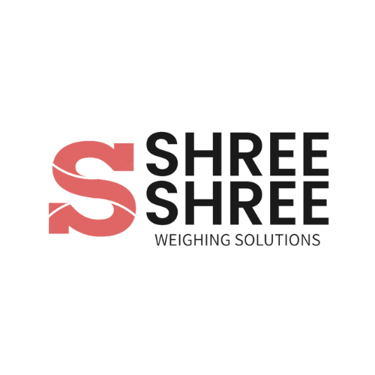The Role of Weighing Scales in the Pharmaceutical Industry
The pharmaceutical industry is one of the most regulated sectors globally, with stringent standards for the production, packaging, and labeling of medications and health products. Accurate measurements are critical in this industry to ensure the efficacy, safety, and quality of pharmaceutical products. Weighing scales are essential tools in pharmaceutical manufacturing, quality control, and compliance processes. In this blog, we will explore how weighing scales are integral to the pharmaceutical industry, ensuring that medications are produced to the highest standards and meet regulatory requirements.
4/28/20255 min read


1. Precision in Ingredient Measurement
In the pharmaceutical industry, precision in the measurement of ingredients is paramount. Active pharmaceutical ingredients (APIs) and excipients (inactive substances) need to be accurately weighed to ensure the correct formulation of medications. Even minor discrepancies in ingredient measurements can lead to products that are either ineffective or unsafe for consumption.
High-precision digital balances are used to measure micrograms or milligrams of active ingredients, which is essential for producing medicines with the correct dosage.
Analytical balances are often used in the early stages of drug development, where extremely small amounts of materials need to be measured with the highest degree of accuracy.
Using the right weighing scales ensures that pharmaceutical products contain the correct dosage, providing efficacy and safety for consumers.
2. Compliance with Good Manufacturing Practices (GMP)
Good Manufacturing Practices (GMP) are the guidelines followed by pharmaceutical companies to ensure products are consistently produced and controlled according to quality standards. One of the key aspects of GMP is the requirement for accurate measurements during production.
Weighing scales used in pharmaceutical production must be calibrated and meet specific standards to ensure compliance with GMP.
Regular calibration and maintenance of weighing equipment is required to maintain compliance with GMP regulations and to guarantee that the scales provide accurate and repeatable measurements.
By using certified weighing scales and ensuring regular calibration, pharmaceutical companies can meet GMP guidelines and maintain product consistency and quality.
3. Supporting Pharmaceutical Packaging and Labeling
Accurate weighing is crucial for pharmaceutical packaging and labeling. Medications must be carefully packaged with the correct dosage, and the packaging weight must align with regulatory requirements. This ensures that the correct amount of product is provided to consumers and that labeling reflects accurate information.
Weighing scales are used to ensure that packaged pharmaceutical products (such as tablets, capsules, and liquids) meet the exact weight specifications required by regulators.
Scales are also used to ensure that packaging materials, such as bottles and blister packs, are properly filled without under- or over-filling.
Using accurate weighing equipment ensures that pharmaceutical products are properly packaged, labeled, and ready for distribution, minimizing the risk of consumer complaints or legal issues.
4. Maintaining Product Consistency and Quality Control
Consistency is a cornerstone of the pharmaceutical industry. Even the smallest variation in the formulation or packaging of a product can impact its effectiveness and safety. Accurate weighing ensures that every batch of medication is consistent, allowing pharmaceutical companies to maintain quality control throughout the production process.
Batch consistency: Weighing scales help ensure that each batch of medication has the same proportions of active ingredients, reducing the chances of dosage errors.
Quality control tests: During production, weighing scales are used to test the quality and uniformity of medications, ensuring that they meet the required specifications.
With the help of high-precision balances and regular checks, pharmaceutical companies can maintain consistent product quality and meet industry standards.
5. Regulatory Compliance and Legal Metrology Certification
The pharmaceutical industry is subject to rigorous regulatory requirements, and weighing scales used in manufacturing and distribution must be compliant with both international and national regulations. Legal Metrology certification ensures that weighing scales are accurate, reliable, and fit for commercial use.
Scales used in pharmaceutical production must be calibrated and certified to meet Legal Metrology standards.
Legal compliance ensures that businesses avoid fines, product recalls, and damage to their reputation while maintaining consumer trust.
By choosing certified weighing scales that meet regulatory standards, pharmaceutical companies can ensure legal compliance and avoid costly mistakes.
6. Precision in Formulation Development
During the formulation development process, accurate measurement of ingredients is critical. Scientists and researchers rely on microbalances and analytical balances to create new drugs, ensuring that the smallest quantities of ingredients are measured accurately for stability and potency testing.
Scales capable of measuring at the microgram level allow for precise formulation and testing of new drugs.
Accurate weighing during development helps speed up the research and development (R&D) phase by providing reliable results.
With weighing scales designed for laboratory environments, pharmaceutical companies can ensure the precision necessary for successful formulation development and testing.
7. Efficient Batch Production and Scaling
Once a pharmaceutical product has been developed, efficient scaling of production is vital to meet market demands. Batch production requires the use of weighing scales to measure large quantities of ingredients accurately. Industrial scales and platform scales are used to handle larger volumes and ensure that every batch is consistent with the development specifications.
Platform scales provide the capacity needed for larger quantities of raw materials, allowing for accurate measurements during large-scale production runs.
These scales help improve production efficiency by reducing the need for manual calculations and minimizing human error.
By using industrial weighing equipment, pharmaceutical manufacturers can scale production while maintaining the integrity and quality of each batch.
8. Enhancing Inventory Management
In the pharmaceutical industry, inventory management is crucial to ensure that raw materials and finished products are always available and properly tracked. Weighing scales assist in managing inventory by providing accurate weight measurements for raw ingredients, intermediates, and finished pharmaceutical products.
Weighing scales help ensure that the correct amount of raw materials is available for production, preventing shortages or surpluses.
Finished products are weighed to ensure that they meet weight specifications, aiding in inventory control and logistics.
With accurate weighing systems, pharmaceutical companies can maintain proper inventory levels, reduce waste, and optimize their supply chain operations.
9. Reducing the Risk of Contamination
Contamination is a major concern in the pharmaceutical industry, and precise weighing can help reduce this risk. Inaccurate measurements can lead to the use of incorrect ingredients, which may result in product contamination or product defects. By using accurate weighing equipment, companies can ensure that the correct ingredients are used in each production cycle, minimizing the risk of contamination.
Scales should be cleaned regularly to prevent contamination between batches and ensure that no residues are left behind.
Automated systems and scales with integrated tare functions help reduce human error and the risk of contamination during the weighing process.
By maintaining a strict protocol for cleaning and calibration, pharmaceutical companies can safeguard their products and maintain high standards of quality.
10. Cost Efficiency in Pharmaceutical Production
The cost of raw materials and production processes can significantly impact the profitability of pharmaceutical companies. Weighing scales help businesses improve cost efficiency by ensuring that the correct quantities of ingredients are used and reducing waste.
Accurate weighing reduces overuse of expensive raw materials, thus reducing production costs.
By optimizing batch production and minimizing errors, companies can increase output without compromising quality.
Efficient use of weighing scales helps pharmaceutical companies reduce production costs while ensuring consistent and high-quality products.
Conclusion
Weighing scales are vital tools in the pharmaceutical industry, ensuring the accuracy and safety of products from formulation to packaging. By investing in high-precision, certified weighing equipment, pharmaceutical companies can meet regulatory requirements, maintain quality control, and optimize production efficiency. Whether for ingredient measurement, compliance, or batch consistency, the right weighing scale can play a pivotal role in the success of pharmaceutical manufacturing.
At Shree Shree Weighing Solutions, we provide a wide range of certified weighing scales designed to meet the needs of the pharmaceutical industry. Whether you require analytical balances, platform scales, or microbalances, we offer solutions that ensure accuracy, reliability, and compliance with industry standards.
Need Reliable Weighing Scales for Your Pharmaceutical Production?
📞 Contact us today for the best weighing solutions in the pharmaceutical industry.
📍 Visit our Ahmedabad showroom, or request a demo at your pharmaceutical facility across Gujarat.
